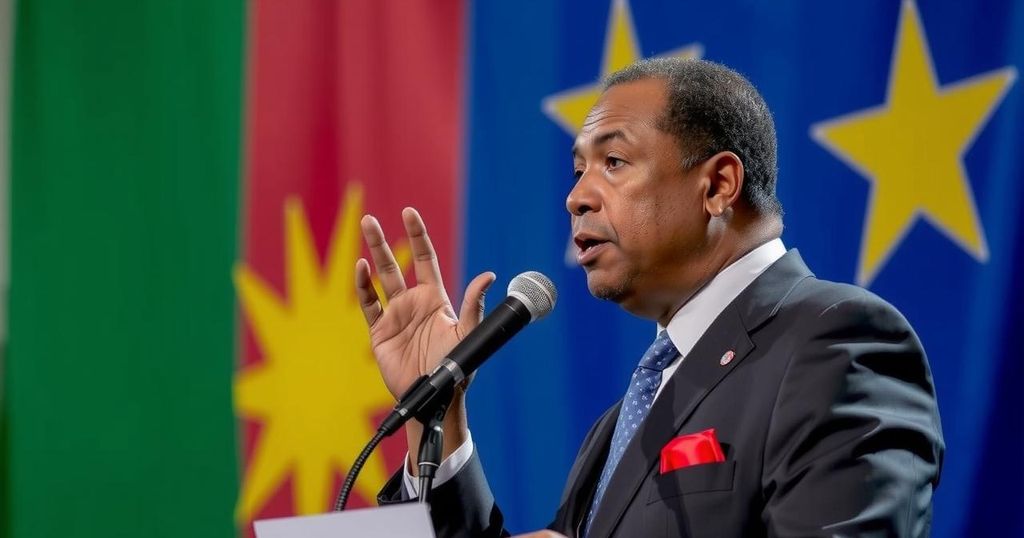Mauritius Prime Minister Pravind Jugnauth has conceded defeat in the recent legislative elections, allowing opposition leader Navin Ramgoolam to potentially return as prime minister. The elections were overshadowed by a controversial wire-tapping scandal and rising cost-of-living issues. With promises to improve governance and economic conditions, the newly elected coalition aims to make significant reforms in the country.
Mauritius Prime Minister Pravind Jugnauth has acknowledged that his coalition is facing a significant defeat in the recent legislative elections, allowing the opposition to seize power. Although final results from the elections conducted on Sunday are still pending, it appears that opposition leader Navin Ramgoolam may return as prime minister for the third time, leading his Alliance of Change coalition. Addressing the media, Jugnauth stated, “The people have chosen another team to lead the country,” and expressed respect for their decision.
The elections held have shifted political dynamics in one of Africa’s most stable democracies, with a notable change as the incumbent and his forces prepare to relinquish authority. While the full results are expected to be published soon, delays in the counting process were noted, attributed to various incidents on election day. Notably, the political landscape was significantly influenced by a controversial wire-tapping scandal that inadvertently raised concerns surrounding civil liberties in the nation just before the elections.
Both coalitions had made promises to improve living conditions for Mauritians who are grappling with rising costs despite an expanding economy. The Alliance of Change proposed initiatives aimed at providing support to struggling families, enhancing pension benefits, reducing fuel prices, and committing to tackling corruption while advancing environmental sustainability measures. Reforms to the electoral system and how leadership positions are filled were also focal points of their campaign, emphasizing the desire for modernization in governance.
Ramgoolam, a seasoned political figure and son of the nation’s first prime minister, expressed confidence in the electoral outcome, suggesting the electorate was seeking a change for better governance. With both he and Jugnauth hailing from political families that have shaped Mauritius’s leadership since independence, this transition signals a potential shift in the government’s approach to managing the country’s challenges, particularly those surrounding governance and corruption.
Mauritius has maintained a reputation for political stability and economic growth since gaining independence from Britain in 1968. The recent elections, however, were marred by controversy, notably a wire-tapping scandal involving high-profile figures that raised substantial concerns about governance and civil rights. Both parties competing in the elections have had to contend with the pressing issue of cost-of-living increases confronting the Mauritian populace, despite the country’s relatively high GDP per capita. Jugnauth’s previous term included diplomatic achievements, such as resolving sovereignty over the Chagos Islands, yet public sentiment appeared swayed towards change amid increasing scrutiny of the incumbent government’s handling of corruption issues.
The recent admission of defeat by Prime Minister Pravind Jugnauth reflects a significant political shift in Mauritius, as the opposition stands poised to take power amidst controversies surrounding governance. With upcoming leaders promising reform and support for citizens facing economic hardships, the future trajectory of Mauritian politics and society may undergo substantial transformation. The presence of longstanding political dynasties magnifies the importance of transparency and accountability in navigating the challenges ahead, particularly regarding the trust of the populace in their leaders.
Original Source: www.bellevueheraldleader.com






